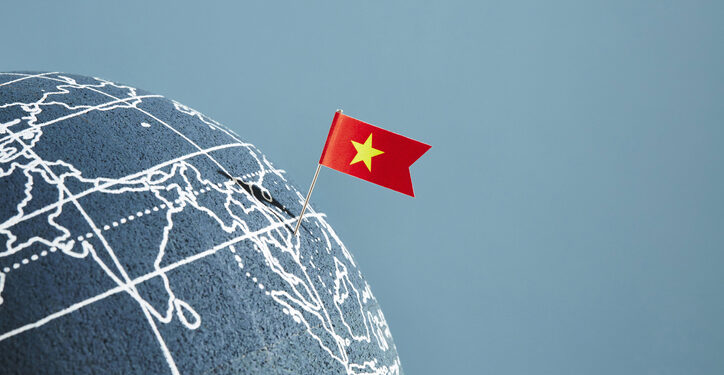No products in the basket.
Trump’s Triumph: Vietnam Aims for a Neutral Position
Trump’s presidency may negatively impact Vietnam’s export-driven growth due to potential tariff hikes. Vietnam will strive to balance its relations with the US and China amidst these challenges.
Trump’s presidency may negatively impact Vietnam’s export-driven growth due to potential tariff hikes. Vietnam will strive to balance its relations with the US and China amidst these challenges.
Key View
- Trump’s victory will cast a shadow on Vietnam’s export-driven growth path, particularly if tariffs are hiked.
- In response, we think Vietnam will try and maintain the delicate balance of ties between the US and Mainland China, partly to preserve the current growth model supported by exports and FDI from both superpowers.
- Meanwhile, we think Trump administration will have a relatively minor impact through investment and financial market channels.
Donald Trump has been elected as the 47th US president. Given his more hawkish stance when it comes to the US’s trade deficits, we think his victory will cast a shadow on Vietnam’s export-driven growth path, particularly if tariffs are hiked. While some of Trump’s policy proposals, such as tax cuts, could benefit short-term US growth and potentially increase demand for Vietnamese exports, some others, such as mass deportations and increased tariffs, could lead to labour shortages and a renewed surge in inflation. What is certain is that the more protectionist stance Trump has promised to adopt is negative for Vietnam, which has an export-driven economy integrated into the global supply chain. The US is a major trade partner for Vietnam, absorbing 30% of Vietnamese exports.
The potential for a Trump victory in the upcoming elections has sparked discussions on Vietnam’s foreign policy direction, particularly its desire for a neutral stance in global affairs. As the United States navigates a complex geopolitical landscape, Vietnam recognizes the importance of maintaining a balanced relationship with both Washington and Beijing. This strategy aims to safeguard its national interests while avoiding entanglement in great power rivalries.
Historically, Vietnam has adeptly maneuvered between competing influences, especially during the Cold War. With Trump’s potential return to power, the unpredictability of U.S. foreign policy could push Vietnam to reinforce its position as a neutral player. This would involve enhancing diplomatic ties with various nations while remaining open to cooperation with all sides. By doing so, Vietnam hopes to mitigate risks associated with external pressures and maintain its sovereignty.
In conclusion, Vietnam’s strategy to seek a neutral stance in light of a possible Trump victory reflects its pragmatic approach to international relations. By balancing its relationships with both the U.S. and China, Vietnam aims to promote regional stability and foster economic growth while ensuring its own security in an increasingly polarized world.
Read More
Discover more from Thailand Business News
Subscribe to get the latest posts sent to your email.














